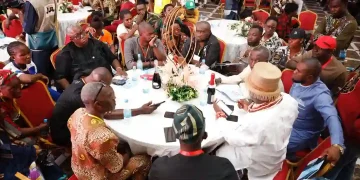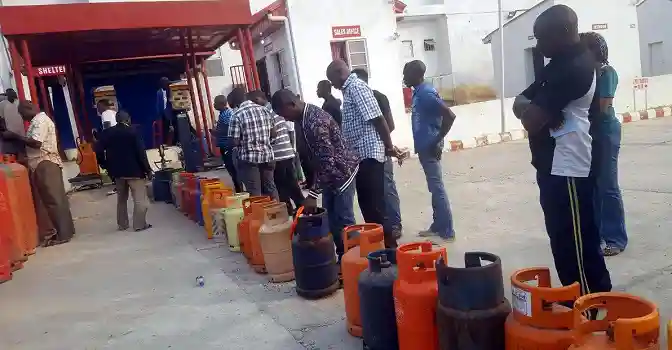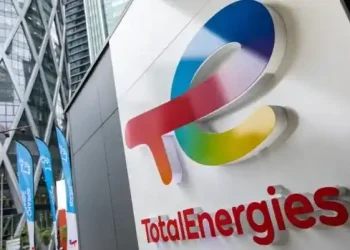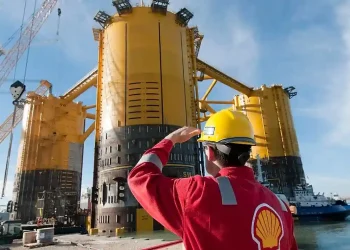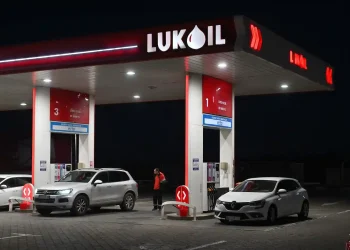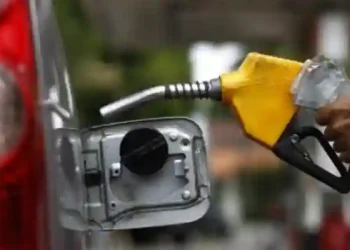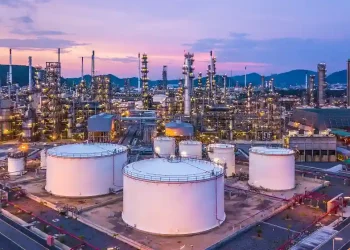As Nigerians keep lamenting about the recent hike in the price of cooking gas, marketers have come out to explain the reason for the increase. Gas marketers have said that cooking gas costing as high as ₦2,000 in some parts of Nigeria has little to do with any official price adjustment.
The Nigerian Association of Liquefied Petroleum Gas recently attributed the surge in price to temporary supply disruptions and market exploitation by some operators.
Speaking on Channels Television’s “The Morning Brief,” the association’s National President, Oladapo Olatunbosun, disclosed that there has been no official increment in the price of Liquefied Petroleum Gas.
Blaming the hike on opportunistic marketers taking advantage of supply gaps caused by the recent PENGASSAN strike against the Dangote Refinery, he sympathised with innocent citizens who are currently feeling the heat.
Oladapo declared that the association is not in support of the actions of erring marketers, stating that he hopes normalcy will return in the near future.
“I sympathise with Nigerians as the President of NALPGAM because we never intended to have a situation like this.
I must say it categorically that prices of cooking gas have not gone up. No increment has been done officially.
What is happening is that some marketers are taking advantage of the shortage in supply and the market forces that have increased demand. They are cashing up to make good money, which is wrong.
We frown at this as an Association, and I’m happy that by the grace of God, normalcy will return in the next few days,” he said.
He further noted that the present situation is not permanent, and normal pricing should return in the coming days.
Oladapo concluded by saying that the problem started when Dangote Refinery, which had previously improved domestic supply by getting rid of middlemen, embarked on maintenance and renovation that immediately slowed truck loading.
“Before the strike, when you load from Dangote, he sends out about 50 trucks per day, which is good because it served the South West and some part of the North well, and if you add it to what you get from Apapa, and other depots in Lagos, because they also source their products from IOCs and other producers.
Dangote came in with his own strategy, selling directly to offtakers. That made importation not to be attractive. You won’t be able to compete if you import because you are likely to incur losses.
But at a time, Dangote also commenced renovation/maintenance, which affected loading.
Trucks started spending like 14 days at Dangote yard before they could get products.
So, marketers switched to Apapa, and nobody felt the impact.
When Dangote finished renovation, and we were about to commence full loading, the strike came in. Although Dangote didn’t stop production, everybody had rushed to Apapa, and it was now out of product, and all the depots there were dry.
The only vessel that came in from NOJ axes was meant to supply three depots could not berth because of the strike. And even when it berthed, the officers to inspect it weren’t on the ground because of the strike, and that caused about five days’ loss, and the real impact of the backlog became obvious.
Now that the strike is off, the product has been discharged, and they are trucking out. But because everywhere is dry and the South West is the only place that consumes the largest amount of LPG in Nigeria.
If you buy a product from a third party, fourth party, the chain has been extended, then the price is going up, which is quite illegal.
Just like you buy petrol on the road for people who carry kegs, they will sell it at exorbitant prices. So if you go to gas plants, the price you can buy today is 1,300 maximum.
People who are claiming to buy gas at 1700 did not disclose the source of their purchase. If you are buying from a third or fourth party, then catch on, and the prices increase.
But if you buy from gas bottling plants, my members, you will not buy as high as that. Average price within my members in Southwest today is between N1000 to maximum of N1300, depending on the location and the kind of overhead they incur to get the gas into the plant.
Before this artificial scarcity, the prices were being sold at 1,050 in some places, N950. So the highest you could get from a gas plant today is N1300, depending on if it’s a very remote area,” he added.

Folami David is a dynamic journalist who views the world through an analytical lens, translating complex narratives across multiple industries into compelling stories. With an insatiable appetite for information and a keen eye for emerging trends, Folami specializes in uncovering the interconnections between technology, business, culture, and society.





